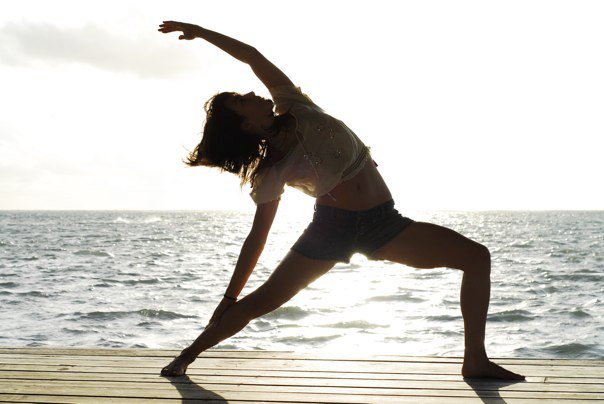 MEDIA ROOTS – “As machines replace skill, they disconnect themselves from life; they come between us and life. They begin to enact our ignorance of value – of essential sources, dependences, and relationships.
MEDIA ROOTS – “As machines replace skill, they disconnect themselves from life; they come between us and life. They begin to enact our ignorance of value – of essential sources, dependences, and relationships.
The catch is that we cannot live in machines. We can only live in the world, in life. To live, our contact with the sources of life must remain direct; we must eat, drink, breathe, move, mate, etc. When we let machines and machine skills obscure the values that represent these fundamental dependences, then we inevitably damage the world; we diminish life. We begin to ‘prosper’ at the cost of a fundamental degradation.”
-Wendell Berry in The Unsettling of America: Culture & Agriculture.
One look at American culture and Berry’s words ring true. We are, beyond a doubt, humans living through machines.
Steel and plastic cages transport our bodies from place to place, while treadmills and ellipticals are used to burn mounting calories. At home, hours are spent fixed to a television or computer screen, as processed foods from the petroleum-based American diet are cooked by microwave. Cell phones in hand, activities previously left to the home or office, are accessed everywhere. Now, as a mobile dictionary, encyclopedia, GPS, internet, television, video game player, camera, audio recorder, telephone and social networking device, the smarter phones become, the stronger the attachment to them and the more constant their use throughout the day.
Suffice it to say, days pass for some people when contact with technology and machines trump their time spent engaging with other humans and the natural world.
In our reliance on technology we forget our own basic skills, functions and needs of movement, human connection, and nourishment of the mind, body and spirit. By neglecting to honor the link that joins our inherent human abilities and our fundamental human needs, we begin to devalue life as our understanding of its ‘essential sources, dependences and relationships,’ weakens.
For example, excessive cell phone and computer use can detract from important face-to-face human interactions, as well as physical movement. These technologies remove us from the present surrounding environment by putting us instantaneously in contact with people in other places and information of every sort. Video and computer games further enable their users to shed themselves of reality through the creation of avatars with their own independent, digital lives, such as in the game Second Life.
While there are tremendous benefits to having immediate access to information and long-distance contact with others, people who spend the vast majority of their daily hours in use of these technologies can develop addictions that leave them uncomfortable and anxious when such immediate response and instant entertainment is not within grasp.
This dependency has potentially crippling consequences. Finding peace in the calm of the present moment can become difficult. With attention divided among people, devices and other input, important details of the present moment go unnoticed, like subtle human interactions and other small things that can bring great joy to life.
The way we communicate, which is fundamental to enriching relationships and thriving communities, is also altered as more interactions take place digitally. In this medium of communication we lose the richness of experience that body language, facial expression, and the sensation of touch and smell, can create.
Hours tethered to a computer, TV or the steering wheel of a car, significantly limit our physical movement to slight motions of the arm at best, diminishing our physical and psychological health while simultaneously degrading our muscular capabilities. Just as dogs need walks, or animals that become restless in cages, we too have an intrinsic need for movement and exercise.
Many of us find ourselves bouncing between digital and natural environments, attempting to achieve balance in a culture that often feels as if it’s herding us towards one singular monotonous way of being. The beauty of this balancing act though, is that we control technology – we have the power to set limits for ourselves, to power off our devices, and to re-engage.
 Simple acts can be transformative. For those who live within a 2-mile radius of frequented places, walking or riding a bicycle is an excellent option that, contrary to popular thought, saves time while adding exercise into the day. Restaurants, cafes and other time spent with friends and family provide good opportunity to detach from technology and give into what is around us.
Simple acts can be transformative. For those who live within a 2-mile radius of frequented places, walking or riding a bicycle is an excellent option that, contrary to popular thought, saves time while adding exercise into the day. Restaurants, cafes and other time spent with friends and family provide good opportunity to detach from technology and give into what is around us.
Another limit-setting technique is to avoid the computer right before bed and for the first hour every morning. It is amazing how a simple and fresh approach to the morning can set the day off right.
As with most things, moderation is key, joined with a genuine respect and appreciation for the human element of the world and our need for movement.
Wendell Berry, in The Unsettling of America, insightfully writes of what we must work to avoid:
“We are wasting our bodies exactly as we are wasting our land. Our bodies are fat, weak, joyless, sickly, ugly, the virtual prey of the manufacturers of medicine and cosmetics. Our bodies have become marginal they are growing useless like our ‘marginal’ land because we have less and less use for them. After the games and idle flourishes of modern youth, we use them only as shipping cartons to transport our brains and our few employable muscles back and forth to work.”
As dark and unforgiving as this portrayal is, it is worth remembering that we live in a country with growing obesity rates and chronic illness. Whether it’s the nature of the work we do, or the food system that feeds us, it is easy to find outlets for blame, yet the responsibility for our well-being rests largely on us.
The concept of health is originally rooted in wholeness, wholeness with our internal and external selves, as well as with our surrounding environment and community. As humans we have the power of our will to act consciously for the enrichment of our lives and the life of the planet, through movement, breath, love and the lightness of body and soul.
It is up to each of us to seek out a lifestyle that integrates these basic needs and abilities. This could be one of the most important day-to-day choices we make because, simply said, our communities will not be healthy until we choose health for ourselves.
If you feel stuck in old patterns and dependencies, realize that you have the ability to shift your body and habits to reach greater strength and peace. You are your own worst enemy. Only you can choose steadfast commitment and determination to truly live, in direct contact with the sources of life.
So, stand with me now, step away from the computer, push your chair back and reach your hands for the sky.
Stretch, breathe deep, smile.
We were made to move. The energy is in you, waiting for release.
Written by alicia roldán ©
Photography by Rick Pickett










